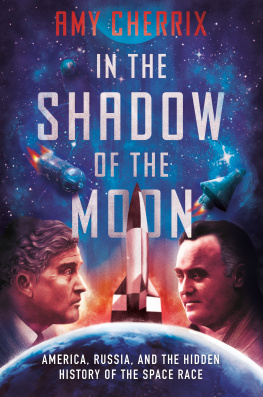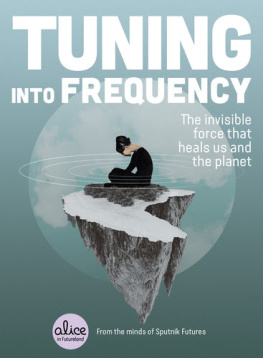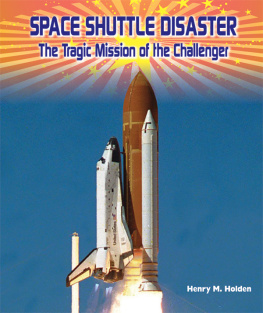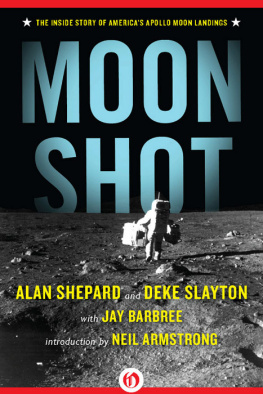Jay Barbree - Live from Cape Canaveral: Covering the Space Race, from Sputnik to Today
Here you can read online Jay Barbree - Live from Cape Canaveral: Covering the Space Race, from Sputnik to Today full text of the book (entire story) in english for free. Download pdf and epub, get meaning, cover and reviews about this ebook. year: 2008, publisher: HarperCollins, genre: Non-fiction. Description of the work, (preface) as well as reviews are available. Best literature library LitArk.com created for fans of good reading and offers a wide selection of genres:
Romance novel
Science fiction
Adventure
Detective
Science
History
Home and family
Prose
Art
Politics
Computer
Non-fiction
Religion
Business
Children
Humor
Choose a favorite category and find really read worthwhile books. Enjoy immersion in the world of imagination, feel the emotions of the characters or learn something new for yourself, make an fascinating discovery.

- Book:Live from Cape Canaveral: Covering the Space Race, from Sputnik to Today
- Author:
- Publisher:HarperCollins
- Genre:
- Year:2008
- Rating:5 / 5
- Favourites:Add to favourites
- Your mark:
- 100
- 1
- 2
- 3
- 4
- 5
Live from Cape Canaveral: Covering the Space Race, from Sputnik to Today: summary, description and annotation
We offer to read an annotation, description, summary or preface (depends on what the author of the book "Live from Cape Canaveral: Covering the Space Race, from Sputnik to Today" wrote himself). If you haven't found the necessary information about the book — write in the comments, we will try to find it.
Jay Barbree: author's other books
Who wrote Live from Cape Canaveral: Covering the Space Race, from Sputnik to Today? Find out the surname, the name of the author of the book and a list of all author's works by series.
Live from Cape Canaveral: Covering the Space Race, from Sputnik to Today — read online for free the complete book (whole text) full work
Below is the text of the book, divided by pages. System saving the place of the last page read, allows you to conveniently read the book "Live from Cape Canaveral: Covering the Space Race, from Sputnik to Today" online for free, without having to search again every time where you left off. Put a bookmark, and you can go to the page where you finished reading at any time.
Font size:
Interval:
Bookmark:

Covering the Space Race, from Sputnik to Today
( Jo Barbree )

This book is for
The damnedest aviation and space writer Ive ever seen
MARTIN CAIDIN
SEPTEMBER 14, 1927 MARCH 24, 1997

(Caidin Collection)
Jay Barbree was present at the creation of the space age. As he likes to tell it, he was on a date in his home state of Georgia the night the Russian satellite Sputnik 1 passed over the United States.
I dont know what happened to his date, but I do know Jay decided at that moment to make the space age his lifes work. He moved to Cape Canaveral, Florida, and began a lifelong love affair with the space program, quickly developing a reputation as the reporter who knew the personalities, the technology, the politics, the triumphs, and the tragedies of this daring enterprise better than any other.
Now, fifty years after Sputnik 1 , Barbree gives us a vivid, first-hand account of how the race into space changed the world. It is a monumentally important story, and no one is better equipped to tell it from the ground up.
Barbree is the only reporter to have covered every mission flown by astronauts. He was there the day Apollo 1 burned, the day Challenger exploded shortly after takeoff, the day Columbia broke up in the skies over Texas.
In his own way, Jay Barbree has been to the moon and back, the space station and back. Hes also been on the verge of death and brought back to life. Training for the Journalist in Space Project, Jay suffered sudden death while jogging on the sands of Cocoa Beach. He made a heroic recovery and returned to what he loved best: reporting on the space program.
Live from Cape Canaveral is his up-close and personal account of a half-century of space exploration. It tells the stories of the courage and genius of the pioneers. But it also describes the mistakes, the feuds, the wild times, and the indelible impression left by these men and women who allowed us to escape the bonds of Earth and fly into the unknown.
A thousand years from now, historians will mark this time as the beginning of the greatest age of exploration ever. Jay Barbree takes you on that first giant step for mankind.
T OM B ROKAW
August 24, 2006
I n 1957, Cape Canaveral was the most vital and most intensely exciting place in the country. It offered cutting-edge technology in a time of nineteen-cent-a-gallon gasoline, nickel Cokes, two-bit drive-in movies, and the hit of the television season Leave It To Beaver . It was a time when doors went unlocked, when virgins married, when divorce ruined your social standing, and when folks spent their lives working for the same company with the promise of lifelong retirement checks.
In 1957 few that walked this planet reflected on the fact they were actually inhabitants of a mortal spaceship eight thousand miles in diameter, circling one of the universes 10,000,000,000,000,000,000,000,000 (ten to the twenty-fourth) stars at 67,062 miles per hour.
However, two groups of men and womengiven the era, it was mostly menwere actually consumed, day and night, by the realities that we were all astronauts living on spaceship Earth. One group worked in the United States at Alabamas Redstone arsenal; the other busied itself in a Soviet hamlet called Baikonur on the steppes of Kazakhstan.
Like the American group, the Russians developed and worked on machines to lift nuclear warheads and stuff off our planet, and on the evening of October 4, 1957, one of their creations, a large white rocket called R7, was being fueled for what some would call the single most important event of the twentieth century. Nearby, inside a steel-lined concrete bunker, an intense middle-aged man named Sergei Korolev was at work. His job, as the chief rocket engineer for the USSR, was to orchestrate the stop-and-go countdown. But unlike his American counterpart, Wernher von Braun, Korolev had the full blessing and support of his countrys communist government.

Cape Canaveral. In the 1950s and 1960s, dozens of rockets and missiles were launched from this real Disney World. (NASA).
While Korolev had been chasing the goal of space flight at breakneck speed, Dr. von Braun had been pleading with President Dwight David Eisenhower to let him launch an Earth satellite. Only the year before, von Braun had moved his rocket and satellite to its launch pad without permission. He was going to launch it anyway, pretending that the satellite accidentally went into orbit. But Lieutenant Colonel Asa Gibbs, Cape Canaverals commander, ordered the satellite launcher returned to its hangar. Colonel Gibbs cared more about his ass and making full colonel than he did history.
Now, with von Brauns rocket in storage, Sergei Korolevs R7 was fueled, and his launch team was ready to send a satellite into orbit and send Russia into the history books.
Gotovnosty dyesyat minut.
Ten minutes.
Steel braces that held the rocket in place were folded down, and the last power cables between Earth and the rocket fell away.
Tri
Dva
Odin
Zashiganive!
IGNITION!
Flame created a monstrous sea of fire. It ripped into steel and concrete and blew away the night. It sent orange daylight rolling across the steppes of Kazakhstan, quickly followed by a thunderous train of sound that shook all that stood within its path.

Sputnik, Earths first artificial satellite, was sent into orbit on October 4, 1957. (NASA).
R7 climbed from its self-created daylight on legs of flaming thrust and soon appeared as if it were an elongated star racing across a black sky. It fled from view and left darkness to once again swallow its launch pad as it became just another distant star over the Aral Sea.
While others strained to see the final flicker of the rocket, Korolev was interested only in the readouts. He sat transfixed by the tracking information streaming into the control room. The data were perfect. He was intently interested in each engines shutdown. Separation of each stage had to be clean. And when the worlds first man-made satellite slipped into Earth orbit, he permitted himself to rejoice with the others.
It would be called Sputnik (fellow traveler), and ninety-six minutes later, it completed its first trip around our planet, streaking over its still-steaming launch pad, broadcasting a lusty beep-beep-beep .
A dream had been realized.
Wild celebrations exploded across the Soviet Union.
I n the NBC newsroom in New York, editor Bill Fitzgerald had just finished writing his next scheduled newscast when the wire-service machines began clanging. The persistent noise rattled most everything. Fitzgerald ran to the main Associated Press wire and began reading.
BULLETIN
London, October 4th (AP)
Moscow radio said tonight that the Soviet Union has launched an Earth satellite.
The satellite, silver in color, weighs 184 pounds and is reported to be the size of a basketball.
Font size:
Interval:
Bookmark:
Similar books «Live from Cape Canaveral: Covering the Space Race, from Sputnik to Today»
Look at similar books to Live from Cape Canaveral: Covering the Space Race, from Sputnik to Today. We have selected literature similar in name and meaning in the hope of providing readers with more options to find new, interesting, not yet read works.
Discussion, reviews of the book Live from Cape Canaveral: Covering the Space Race, from Sputnik to Today and just readers' own opinions. Leave your comments, write what you think about the work, its meaning or the main characters. Specify what exactly you liked and what you didn't like, and why you think so.






